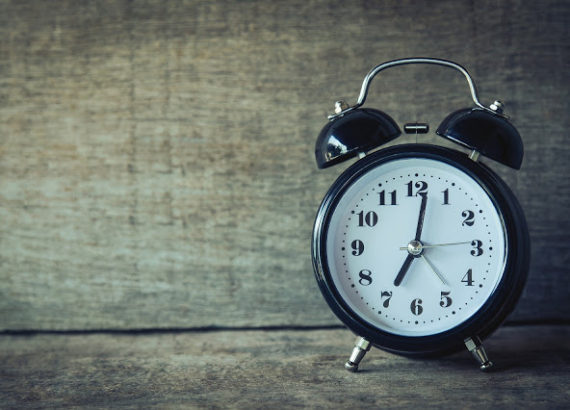People Who Are Always Late Are More Successful, Creative, And Live Longer, Says Science

Who is the first person you thought of when you read the title of this article? Your best friend? Mom? Coworker? If you’re anything like me, yourself 🤭I’m notoriously late, even just 5-10 minutes late, no matter how much I want to be on time I’m typically “the late person.” Believe me, I know how frustrating it can be when you’re stuck waiting for me, but many on time people don’t realize it’s just as frustrating for me that I’m late. I don’t want to be a bad timekeeper! We all know being late is frowned upon and being punctual is admired but this doesn’t seem to stop some of us from being chronically late.
“There are all sorts of disincentives and punishments for being late, and the paradox is we’re late even when those punishments and consequences exist,” Justin Kruger, a social psychologist at New York University’s School of Business told Reddy.
So why are some people chronically late? I’ve got some good news for you, scientists have found personality traits that are indicative of being late. Almost as a side of effect of their personality if you will. Surprisingly, many of these personality traits are associated with positive outcomes. Let’s start with the findings!
✅People who are late experience less stress

Tardy people usually don’t care if others are late therefore they assume others won’t mind if they are late. They seem to think of the bigger picture and realize that being slightly late usually won’t affect their life long term, but stress will. This can bleed into all aspects of their life meaning they usually are less stressed overall. Less stress can lead to a longer lifespan.
✅People who are late are often more optimistic
Research has shown that people tend to underestimate how long a task will take to complete by a colossal 40%. This leads to excessive tardiness, but there seems to be a legitimate reason for this error in time judgment…
✅Type B’s (who also tend to be late) feel time pass differently
“So if you have an 18 second gap… That difference can add up over time” – the Wall Street Journal reported as Conte Told Sumathi Reddy.
✅Being more optimistic is associated with success
People that are late are also more enthusiastic which has a positive outcome on success. Studies have shown that people who are disorganized and often late tend to be enthusiasts. Typically high-spirited, playful, and enthusiatic in everything they do. Though this doesn’t come with some drawbacks, ( being scattered, undisciplined, and thinking they can achieve more than they can in a given amount of time.) but being more enthusiastic is also associated with being extroverted, having high hopes for the future, living in the moment, and being positive overall which have all been associated with success. Having a more positive outlook on life, in general, leads to success or an individuals perception of success.
✅People who are late tend to be disorganized, which is surprisingly associated with positive traits

- Breaking down an activity into detailed steps can help us more accurately estimate how long something will take.
- Mentally visualizing the activity can provide a more realistic duration according to a 2012 study.
- Realizing we can’t be in two places at once so actively planning fewer activities and giving ourselves more time to complete them.
- Setting a timer and simply stopping and making ourselves leave on time!
Accepting that we need to try harder to be on time is the first step! But it’s good to know the scientific reasons for our chronic tardiness, and that hey, even though being late is one of our faults it looks like running late is associated with some pretty great positive traits too. Source















